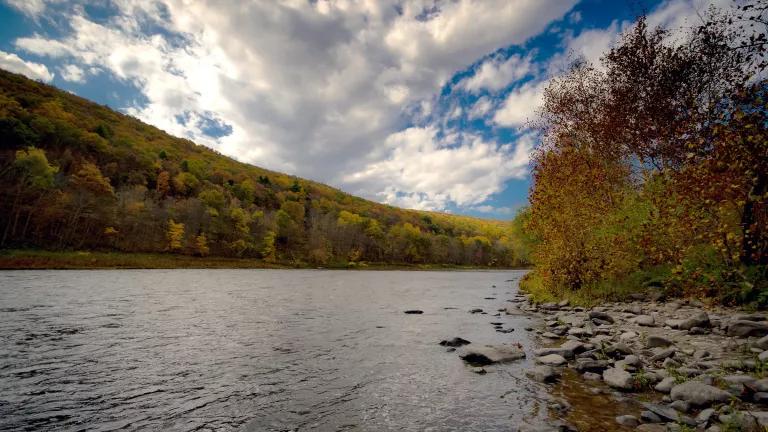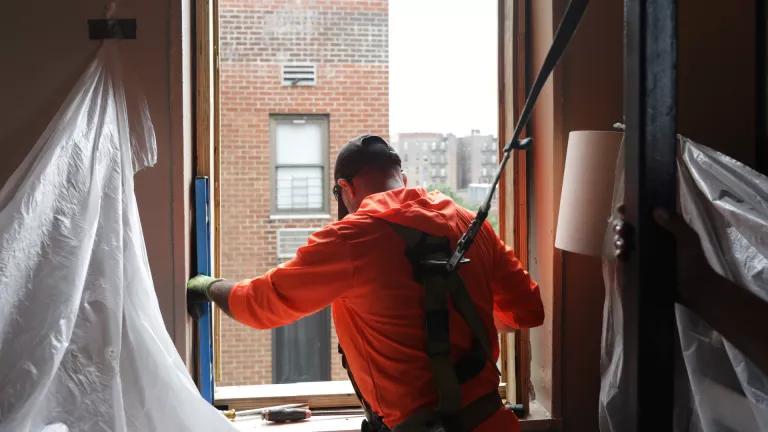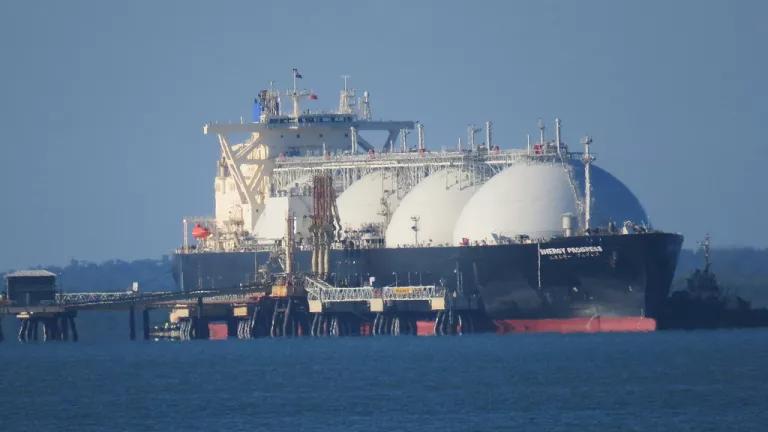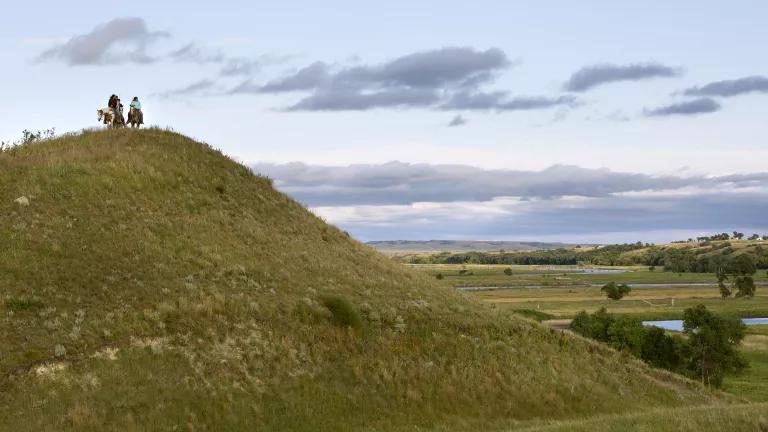PennEast Gas Pipeline Cancelled by Developers
Development of the PennEast Pipeline has been put on hold! This fracked gas pipeline would be disastrous for the Delaware River Basin and would exacerbate the climate crisis—here’s how we can stop the pipeline permanently.

Co-authored with Maggie Valachovic (Legal Intern, NRDC)
December 1, 2021 Update: The PennEast Pipeline Company has further confirmed in a submission to the Federal Energy Regulatory Commission (FERC) that the pipeline is canceled and that the company no longer intends to pursue its development.
Developers of the PennEast Pipeline, a proposed fracked gas pipeline that threatens one of the last large, free-flowing rivers in the United States and a source of drinking water for 13 million people, have stopped development of the pipeline. On September 27, 2021, developers PennEast Pipeline Company announced that they are canceling plans to advance the pipeline due to difficulties associated with acquiring necessary land rights in New Jersey. The proposed pipeline was intended to transport approximately 1 billion cubic feet of fracked gas from northeastern Pennsylvania to Mercer County, New Jersey every day—polluting the waters of the Delaware River, harming the wildlife that rely on the river for survival, and accelerating the climate crisis.
A wide variety of stakeholders have worked to stop the pipeline, including environmental groups like the New Jersey Conservation Foundation, Delaware Riverkeeper Network, NJ Sierra Club, NRDC, and many others; legislators representing people who would be affected by the pipeline, like Congressman Tom Malinowski of New Jersey’s 7th District; and even the State of New Jersey, one of the states the pipeline would cut through if built. The decision to cease the development of the pipeline follows a lengthy litigation between PennEast Pipeline Company and New Jersey over whether the company could ask a court to order the state to grant access to state land for construction of the pipeline; the U.S. Supreme Court ruled on the case earlier this year.
The cancelation of PennEast is great news in the short term for the Delaware River Basin, a pristine and invaluable resource in our region. This watershed serves as critical habitat to over 400 types of birds and over 90 fish species, and construction of the pipeline would endanger the habitats of six federally-listed threatened and endangered species including the bog turtle, the rusty patched bumble bee, and two species of bats. Additionally, over 13 million people, including residents of New York City and Philadelphia, depend on the Basin for drinking water. And hundreds of thousands of people count on it annually for boating, hunting, fishing, hiking, biking, wildlife viewing, birding, and scenic touring. The Delaware River has been designated as a cultural, ecological, geological, recreational, and scenically important site under the Wild and Scenic Rivers Act. Pollution from pipeline construction would also jeopardize the 600,000 jobs in the coastal, ecotourism, recreation, and water industries, which amount to over $10 billion in annual wages.
The decision to cancel the pipeline reflects what we already know: that the PennEast Pipeline has no place in the Delaware River Basin or anywhere else. Once operational, the pipeline would have exacerbated the climate crisis, introducing nearly 50 million tons of carbon dioxide into the atmosphere each year—the equivalent of the carbon dioxide emitted by all of the cars in Los Angeles, Chicago, and Houston combined. Furthermore, the pipeline would have perpetuated our reliance on fossil fuels at a time when we must prioritize transitioning to clean energy to protect our planet’s future. In fact, bringing more natural gas to market directly contradicts the climate goals set forth by some of the Delaware River Basin states, including New York.
The PennEast Pipeline has been canceled, but that may not be the end this story; its developer is still exploring how it might be able to develop the portion of the pipeline contained within Pennsylvania. However, the governors of New York, New Jersey, Pennsylvania, and Delaware can stop the PennEast Pipeline once and for all. These four governors are members of the Delaware River Basin Commission, which can block any project that will have a “substantial effect” on water quality in the Basin. These governors can take a stand for our water, our communities, and our climate by voting to block the PennEast Pipeline for good.
If you live in one of the Basin states—New York, New Jersey, Pennsylvania, or Delaware—you, too, can act to safeguard the Delaware River Basin’s precious natural resources. Contact your governor to urge them to protect our planet and vote against the PennEast Pipeline in any of its forms.
- Contact Governor Kathy Hochul of New York here.
- Contact Governor Phil Murphy of New Jersey here.
- Contact Governor Tom Wolf of Pennsylvania here.
- Contact Governor John Carney of Delaware here.
This blog provides general information, not legal advice. If you need legal help, please consult a lawyer in your state.



